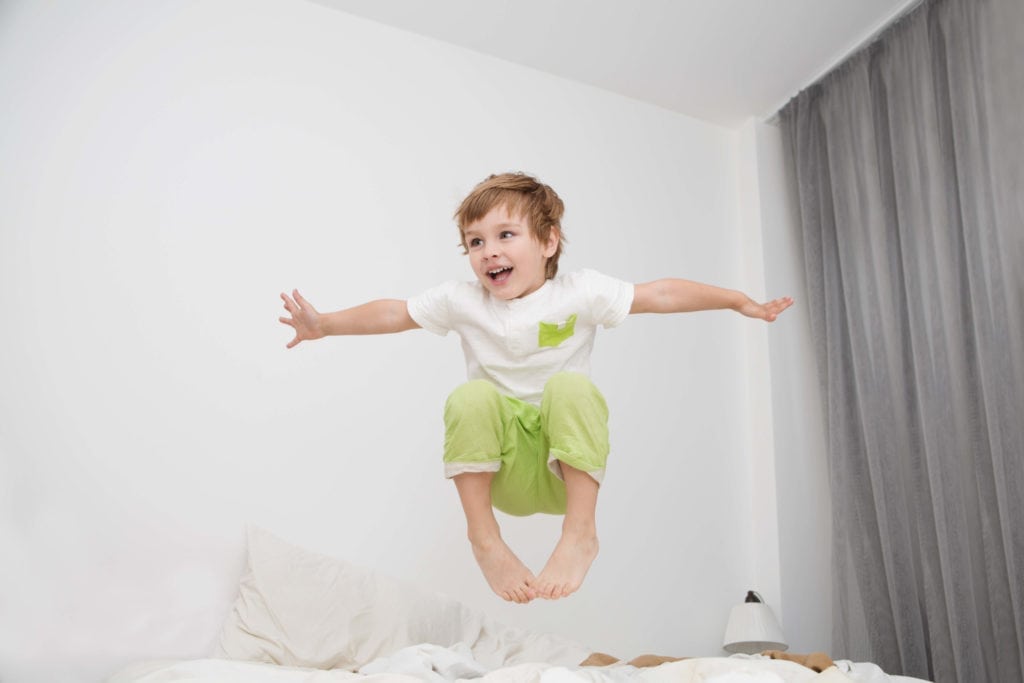Hyperactive children may have serious conduct problems. At home they are always restless and at school they upset the tranquility of the class. It seems that there is no activity or anyone in the world that can make them relax or entertain them for a few minutes.
The little ones that are hyperactive generally alter the balance of a group of children, almost to become annoying for those who want to read, draw or play in peace. For the teachers they are a real headache, for neighbors they can be a cause for complaint. The trips you want to do, in any place, rather than in leisure time, turn into moments of hard work, continuously monitoring their behavior.
We have written this article, with the intention of helping you control your hyperactive child by offering you some exercises that you can do at home.

Fun activities for hyperactive children
Make puzzles
The puzzle “breaks” a child’s hyperactivity. Always and that the image to reconstruct interests him in some way, he will want to dedicate a few minutes.
One of the characteristics of a hyperactive child is that its focus of attention changes quite easily and very quickly. After arranging the first pieces and starting to see the figure, the puzzle may stop intriguing.
It is possible that after a while you will find it more fun to throw the tiles on the street or have them plunge into the water bucket.
This is why, dear parents, if you have a hyperactive child and decide to have him do puzzles, you don’t just have to rely on the magic of the game and leave him alone.
Take time with him to comment on the beauty of the image that is forming, the colors, as you can frame it when finished. Later you can put it in your room or give it to a family member as a birthday present.
In summary: even when you offer an activity that for others can be extremely relaxing, remember that your child needs more incentives to remain attentive and interested.
In addition to landscapes, animal figures or any other image, the puzzles with geometric figures appear to be adequate for these little ones.
Draw diagrams
Drawing patterns, Greek or frames, can give your child a little calm.
Ask him, for example, if he wants to change the decorations in his bedroom by adding a personal touch.
Draw Greek or other patterns around your room, for example in the lower part of the walls, almost near the floor. To do this build a stencil and draw it where it will be applied.
When your child returns from school, ask them to help you. Take brushes and colors and drawings with you.
This activity will take up most of the afternoon and maybe even for a few days.
Do fun physical exercises
Physical exercises can help you burn off this extra energy. Also take advantage of a workout and invite him to play baseball, basketball or football in the courtyard.
Collaborate at home
Homework is a precious time for the life of hyperactive children.
Those who spend a few hours helping to lay the table or unravel it, and in any case to fix things, feel useful and satisfied with themselves.
Encourage your child’s personal satisfaction, show him that it is worth, educate him, and make him feel proud of himself by entrusting him with the tasks and responsibilities that he will have to carry out, for his well-being and those close to him.
Advice for mothers of hyperactive children
Moms, you need to be patient with a hyperactive child. Your child needs more physical activity than others to burn the energy he has.
Don’t scream when you call him or explain things to him. Talk to him in a low and serene tone.
For nothing in the world be violent: neither verbally nor physically.
Don’t criticize him and don’t compare him to his friends.
Give it all your love, especially in times of hyperactivity.
Explain to them why it’s not good that they behave in one way or another, try to make them understand all the consequences of their behavior.
Don’t always blame his hyperactivity. Children are curious, adventurous, explorers par excellence. When you think that it is the hyperactivity that is getting the better of him, take a break to evaluate if it is not a behavior that any other child of his age could have.



